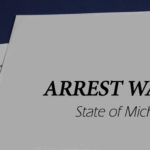How do I get a Personal Bond at Arraignment on a Warrant?
To ensure the lowest possible bond, a defendant must address the judge’s concerns about the risk of flight and potential danger to the community.

Factors Considered at Arraignment Regarding Bond
In Michigan, judges must consider many factors when determining what type of bond to give a defendant when they are arraigned on a warrant or arrested on a new felony or misdemeanor case in Michigan. If a defendant is arrested and released on an interim bond (one set at the police department), the judge or magistrate might change the amount of the bond when the defendant appears for arraignment. A personal or personal recognizance bond is one in which the defendant does not have to post money with the court or jail. With a Personal bond, the defendant merely promises to appear in court and will owe a predetermined amount of money to the court if they fail to appear or violate a condition of the bond. Convincing the judge to grant a personal bond at arraignment in criminal cases can be challenging.
The best chance of having a lenient bond set in a case is with the assistance of an experienced, zealous, retained lawyer known for achieving extraordinary results. Judges and magistrates are much more likely to find that a defendant is not a flight risk when they have invested in retaining a paid criminal attorney. For those individuals who do not have the financial wherewithal to hire a Michigan criminal attorney for the arraignment, a court-appointed attorney will provide basic representation at that stage of the proceedings.
Three Types of Bond in Felony and Misdemeanor Cases
In Michigan, there are three types of bonds. When determining a defendant’s bond at arraignment, the judge or magistrate can issue a cash bond, a 10 percent bond, or a surety bond.
- A cash bond requires a cash deposit before a defendant is released from custody. A cash bond is a money guarantee that the defendant will return to court for all hearings. A court is most likely to order a cash bond if the judge believes the defendant is a flight risk or a danger to the community. When the judge sets a cash bond, they must pay the full bail amount to the court before being released.
- With a 10 percent bond, the court will accept 10% of the total bail amount. If the defendant does not appear, the court may forfeit the 10% payment and require payment of the remaining 90%.
- A personal recognizance bond is a written contract signed by the defendant, guaranteeing that they will return to court when ordered and follow all terms and conditions of the bond set by the judge. Once the contract is signed, the jail or police department releases the defendant. An individual’s best hope of getting a personal bond at arraignment is with experienced defense counsel.
A bond can also be a surety bond. A surety is a promise made by an authorized bondsman that the defendant will appear in court and follow the bond conditions. In all but the most severe cases, a judge permits a surety. A bondsman’s fee is typically 10% of the bond’s amount.

Judges Must Follow the Rules
Michigan Court Rule (MCR) 6.106(F)(1) directs judges in deciding what type of bond to use and what types of terms and conditions of bond are appropriate. Before a judge even considers granting a personal bond at arraignment, they will consider the following:
In deciding which release to use and what terms and conditions to impose, the court is to consider relevant information, including:
- defendant’s prior criminal record, including juvenile offenses;
- defendant’s record of appearance or nonappearance at court proceedings or flight to avoid prosecution;
- defendant’s history of substance abuse or addiction;
- defendant’s mental condition, including character and reputation for dangerousness;
- the seriousness of the offense charged, the presence or absence of threats, and the probability of conviction and likely sentence;
- defendant’s employment status and history and financial history insofar as these factors relate to the ability to post money bail;
- the availability of responsible members of the community who would vouch for or monitor the defendant;
- facts indicating the defendant’s ties to the community, including family ties and relationships, length of residence, and
- any other facts bearing on the risk of nonappearance or danger to the public.
Motion to Reduce Bond
If a defendant cannot afford to post a bond, a criminal defense attorney can file a Motion to Reduce Bond with the court and request a lower bond, a 10% provision, or a personal bond. A motion is typically a written request delivered to the court and prosecutor. In most cases, the judge will permit the attorneys to argue their respective views about the bond at a hearing. Although a defendant has the right to represent themselves and seek bond reduction without a lawyer, self-representation is rarely successful. The advantage of hiring an experienced lawyer at the onset of a case is that they increase the likelihood of the judge granting a personal bond at arraignment.

Frequently Asked Questions
What does it mean when a judge gives you a bond?
A judge must grant a reasonable bond to a person charged with a felony or misdemeanor in Michigan, with limited exceptions. When a judge “gives you a bond,” they order your release if you satisfy specified conditions. The conditions can require the deposit of money with the court or jail or compliance with various other terms, such as tether, curfew, alcohol/drug testing, etc. When someone pays a bond, the defendant is released from custody and must appear voluntarily for all court appearances.
What is a personal bond?
A personal bond, also known as a personal recognizance bond, is a written promise to appear in court and follow various conditions set by a judge or magistrate. A judge will specify a specific amount of money to necessary if the defendant violates their bond conditions. For example, suppose a defendant gets a $1,000.00 personal bond at arraignment. If they fail to appear in court, the judge will issue a warrant and order the defendant to pay the court $1,000.00.
What happens after a judge issues a warrant in Michigan?
When the prosecutor files charges, a court issues a warrant for the defendant. A warrant is also issued if a defendant previously released on bond fails to appear in court as required. When a warrant is issued, the court clerk enters the defendant’s information into the Law Enforcement Information Network (LEIN), and that person is then subject to arrest and incarceration.
What does a $500 bond mean?
A $500.00 bond means that $500.00 must be paid to the court or jail to secure the defendant’s release from custody. The court holds the $500.00 until the case’s conclusion and returns it to the individual who deposited it. A skilled lawyer will argue for a personal bond at arraignment so that their client is not required to post or deposit cash with the court.
Is bond the same as bail?
Bond and bail are the same things. For example, a personal bond at arraignment is the same as a personal bail.
What does PR mean in bonds?
A “PR bond” is short for “personal recognizance bond.” A personal recognizance bond is one in which the defendant promises to appear at future court dates and follow the conditions set by the court. The defendant does not need to pay or deposit any money with the court. If the defendant violates the bond, then they must pay a pre-determined amount of money to the court clerk.

Michigan Criminal Defense Attorney for Personal Bonds
If you or a loved one is charged with or accused of a criminal offense in Michigan and there is or might be an outstanding arrest warrant, you need a Michigan criminal attorney right away. The experienced, passionate, and successful criminal lawyers with LEWIS & DICKSTEIN, P.L.L.C. have handled thousands of arraignments and have a track record of successfully achieving personal and low bonds when personal bonds are not possible. We would be happy to consult with you for free, and we are available for night and evening consultations when needed (24/7). Most importantly, we are not afraid to win!
Call us today at (248) 263-6800 for a free consultation or complete an online Request for Assistance Form. We will contact you promptly and find a way to help you.
We will find a way to help you.
We Are Not Afraid to Win!
Top 10 Tips for Getting a Personal Bond at Arraignment
Here are 10 tips for getting a personal bond at an arraignment:
- Be on time: Arrive early to your arraignment so that you can make a good first impression.
- Dress appropriately: Wear clean and conservative clothing to show the court that you respect the proceedings.
- Hire an attorney: An experienced criminal defense attorney can help you understand the charges against you and negotiate a personal bond with the prosecution.
- Be respectful: Address the judge and any other court personnel politely and respectfully.
- Provide information: Provide the court with information about your employment, family ties, and any other ties to the community that demonstrate that you are not a flight risk.
- Show remorse: If applicable, express remorse for any actions that led to your arrest and indicate your willingness to make amends. Only show remorse or contrition if that is what your lawyer advises as a strategy at arraignment when requesting a personal bond.
- Demonstrate stability: Provide evidence of a stable living situation, such as a fixed address and a stable job.
- Be prepared to pay: Be prepared to pay a bond fee if the court declines to set a personal bond. Although a good, retained attorney is your best hope for a personal or low bond, no one can ethically guarantee a personal bond. Anything is possible.
- Abide by all conditions: If the court sets a personal bond, be sure to abide by all conditions, such as regularly reporting to a probation officer or not leaving the state without permission. Make sure you have a written copy of all your bond conditions and that you are familiar with them.
- Stay out of trouble: Avoid further involvement with the criminal justice system while out on bond. Staying out of trouble will demonstrate to the court that you are taking the proceedings seriously and not a danger to the community.













